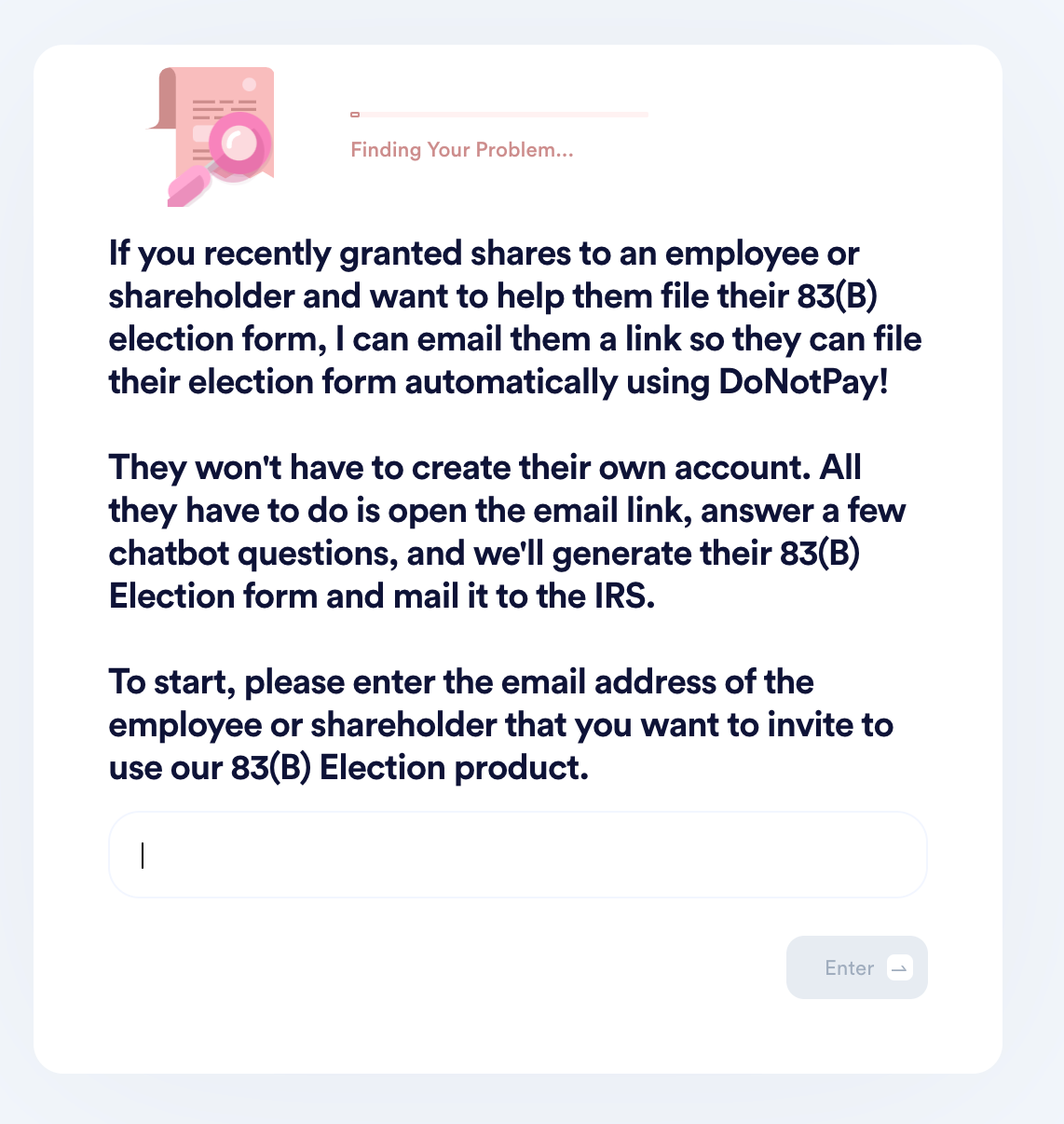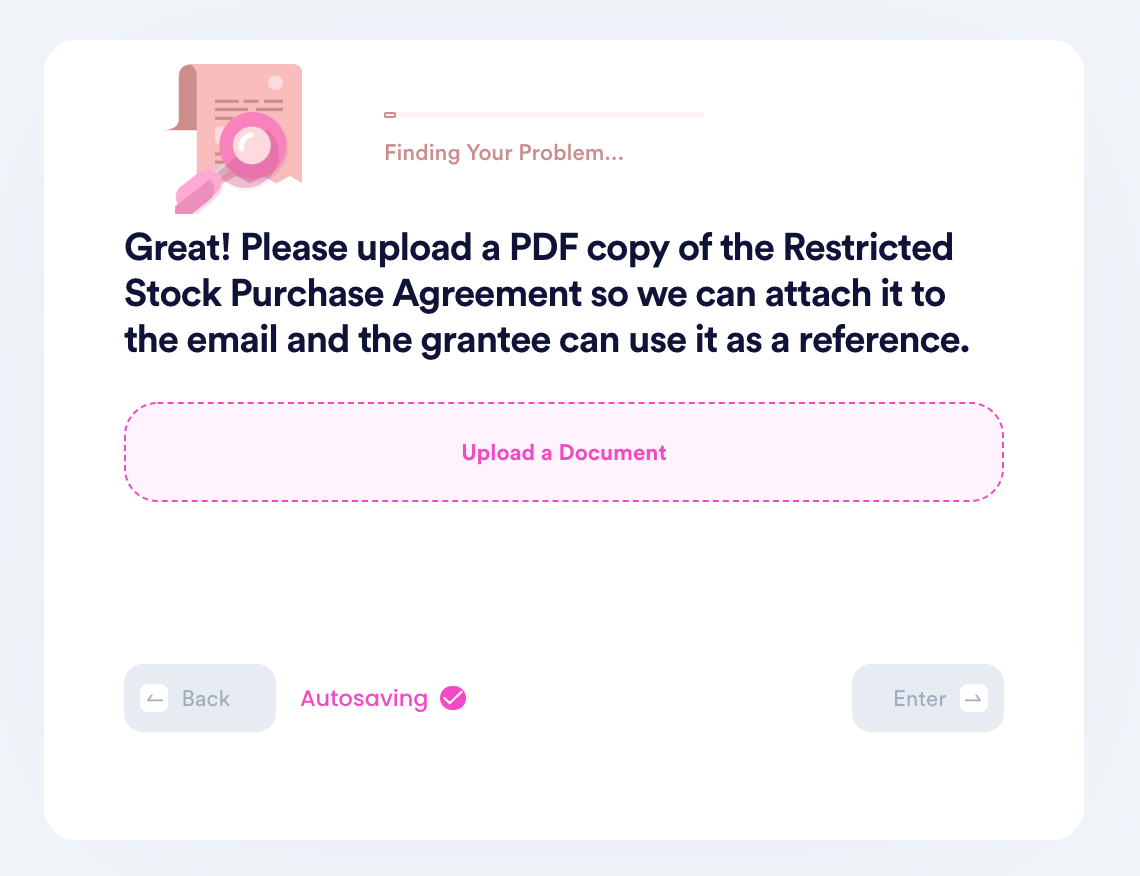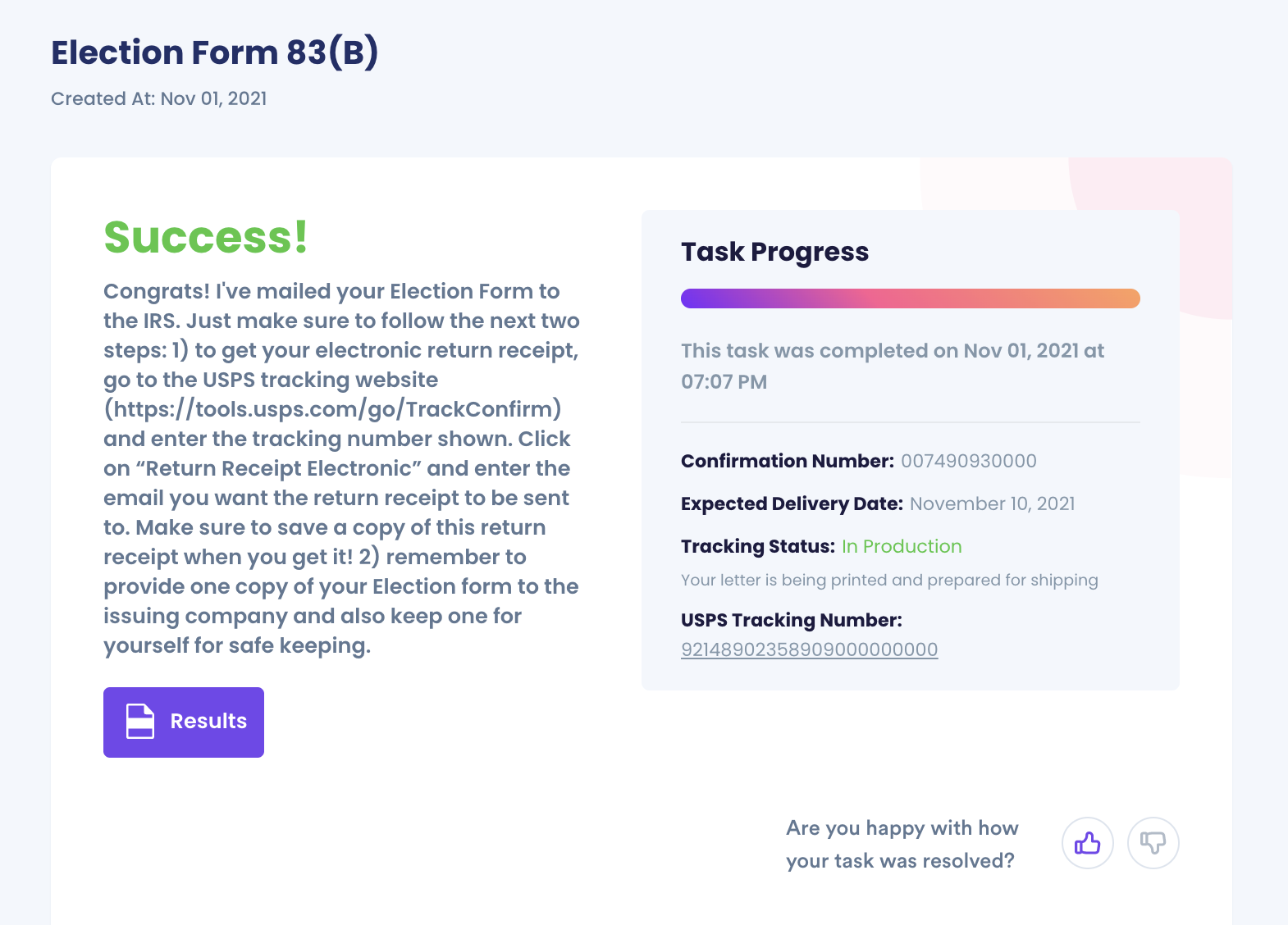All About 83(b) Election Electronic Filing
For individuals or employees who've been granted restricted stocks, it is critical to make an 83(b) election request to the Internal Revenue Service (IRS). That's done to allow the recipient to pay lower taxes on the capital income gains of the shares when they are vested. Traditionally, people filed their 83(b) election forms via a certified return mail, but the IRS permitted 83(b) election electronic filing early this year for more convenience.
There's a lot to be done when making the filing conventionally. You need to:
- develop copies of the form containing your original signature 83(b)
- verify the IRS center address
- send copies to other concerned parties
That is time-consuming and challenging for many individuals, but DoNotPay provides an easy and fast application tool, enabling employers and employees to file 83(b) elections electronically.
Understanding 83(b) Election Electronic Filing
Before we explain electronic filing, it would be best first to understand what 83(b) election is. An 83(b) election form is filed by individuals or employees who've been granted restricted shares. The essence of making the application is to speed up the point of taxation for income taxes on the stocks, from the time they vest to the time they are granted. Thus, the taxpayer will pay lower tax rates compared to when the shares vest.
On April 15, 2021, the IRS started accepting 83(b) election electronic filing. That means shareholders under Section 83(b) of the Internal Revenue Code can use electronic signatures when signing their forms. It's a filing process that allows individuals to file 83(b) elections on smart devices.
When to Sign an 83(b) Election Form
The IRS only accepts 83(b) election electronic applications filed within 30 days of receiving restricted stocks. Failure to file your 83(b) online means the IRS expects the recipients of shares to file their tax returns on the now-vested shares at the same rates as ordinary income. An 83 election saves you money as you lower your tax obligations by paying lower rates when you first receive your restricted company shares.
What Happens After a Missed Section 83(b) Election?
Missing to make IRS forms electronic signatures 83(b) has its tax consequences, but there's still hope for a taxpayer. Below are two options you might consider:
- Read and understand the grant agreement as some grants may not satisfy the conditions under the agreement. For instance, the board may have been required to approve a grant, but it didn't. In that case, you might argue that the stock wasn't granted and seek a re-grant.
- Work together with the company to amend the terms of the grant and have them vest immediately. The taxpayer will receive income equal to the fair market value of the now-tradable stocks. However, the shareholder will not recognize any additional income until the disposition of the stocks.
Does Missouri Require 83(b) Election Filing?
Section 83(b) of the Internal Revenue Code governs income tax related to granted shares in all US states, including Missouri. Previously, one was required to mail their 83(b) election in Missouri filing to the IRS Center in Kansas City, MO 64999-0002. Still, recipients can easily file taxes online with 83(b) remotely using DoNotPay.
Instructions for 83(b) Election Electronic Filing
Filing tax returns is usually a complicated process, and paying tax on company shares is especially challenging. Besides adhering to the 30-day window period, you need to complete, sign, and mail a Sec. 83(b) form to the IRS via a certified return mail. That's an additional workload to employers, but DoNotPay streamlines the process, making it easy and convenient.
Below are three easy steps for making 83(b) election filing using DoNotPay.
- Enter the email address of the employee/shareholder you want to grant shares to.

- Upload a copy of the Restricted Stock Purchase Agreement.

- And that's it! We'll email the grantee with a special link so they can access the DoNotPay 83(B) Election Form Filing Product and file their forms automatically. You'll be able to see the completed task on your dashboard, and the grantee will receive a tracking number to track the status of their shipment as well.

Why Use DoNotPay to File 83(b) Election Online?
Unlike the conventional manner of filing Sec. 83(b) forms (with handwritten signatures), DoNotPay offers a more convenient means of filing IRS forms electronic signatures 83(b). Below are some upsides to using DoNotPay:
| Fast | With DoNotPay, you do not need to spend hours trying to make your filing. You do that by following three simple steps. |
| Easy | No more filling out tedious forms, developing copies, or dealing with uncertainties of not following all the steps. DoNotPay is an easy-to-use online tool that simplifies the entire filing process. |
| Successful | At DoNotPay, we work for you. We'll make the case on your behalf to ensure the IRS approves your 83(b) request. We also simplify the steps on how to confirm IRS received 83(b) election forms for you. |
What Else Can DoNotPay Do?
Apart from 83(b) election filing, DoNotPay can also help you access various services and online hacks, such as:
- Cancellation of any subscription or service
- Accessing college fee waivers
- File child-travel consent forms
- Appeal parking tickets on any city
If you're having trouble accessing social services online, use DoNotPay today. We are your trusted AI Consumer Champion, providing you access to critical services with high success rates.


